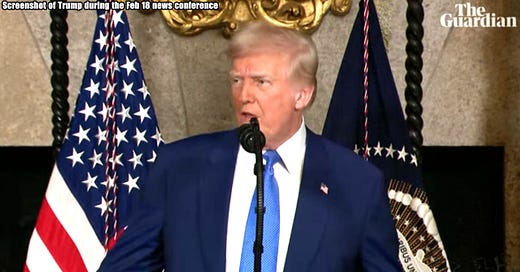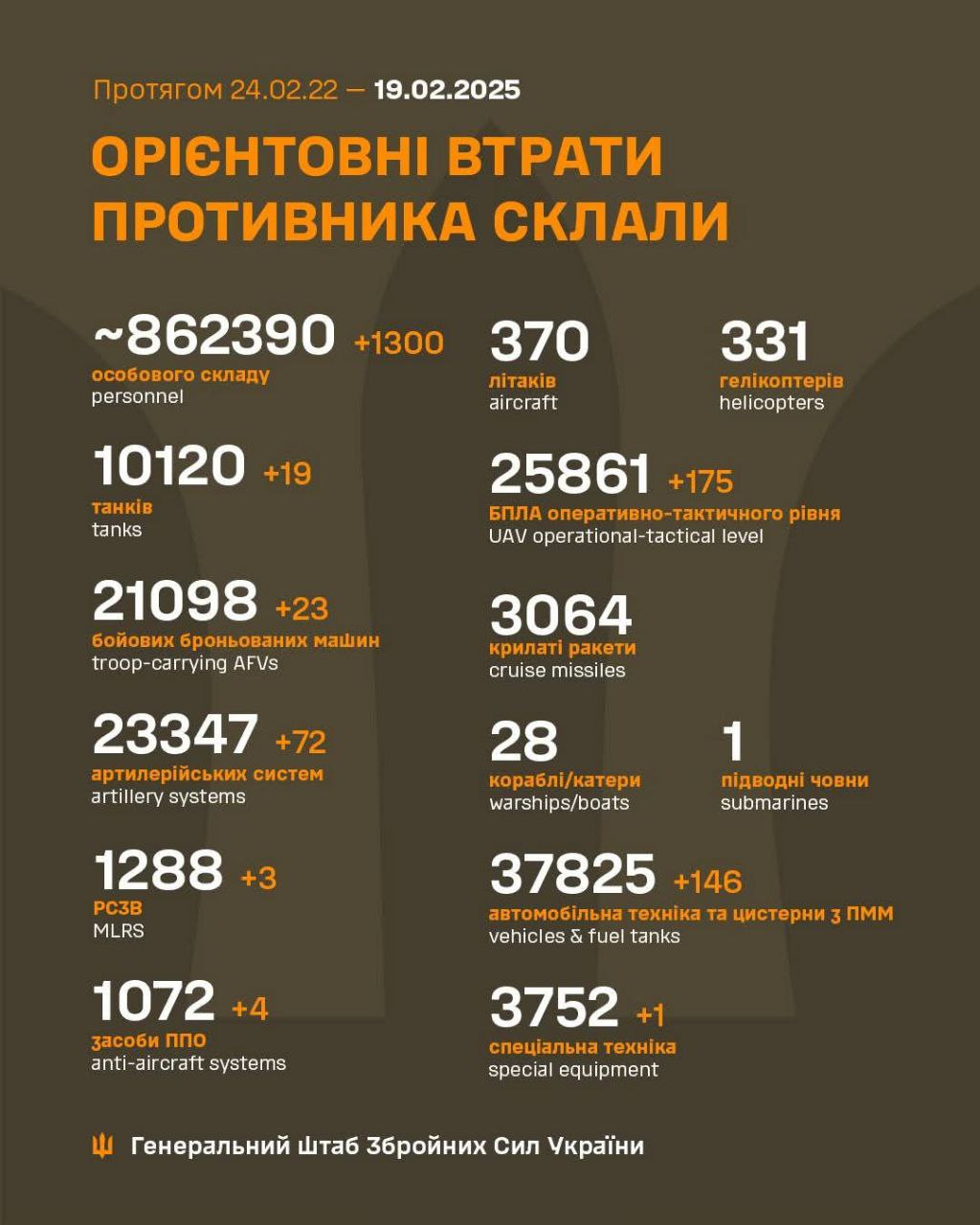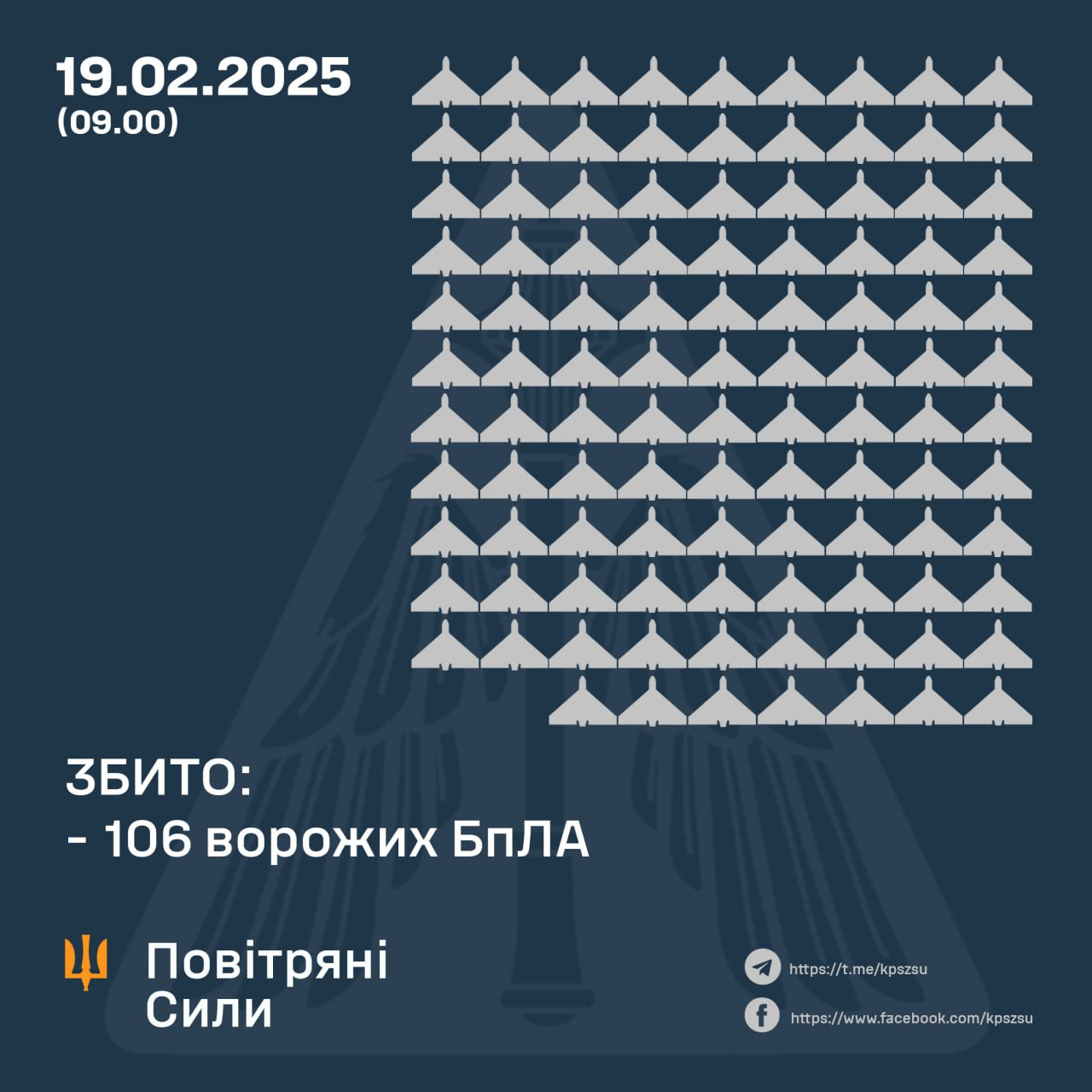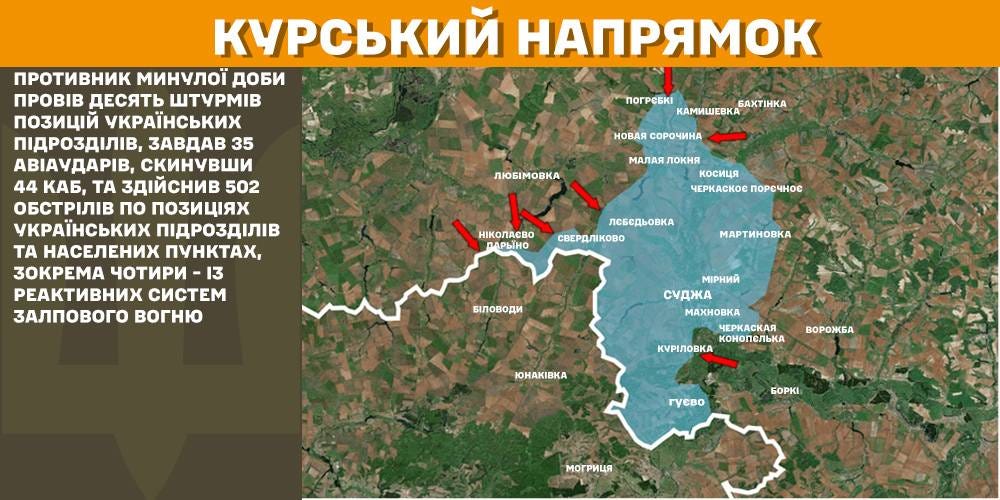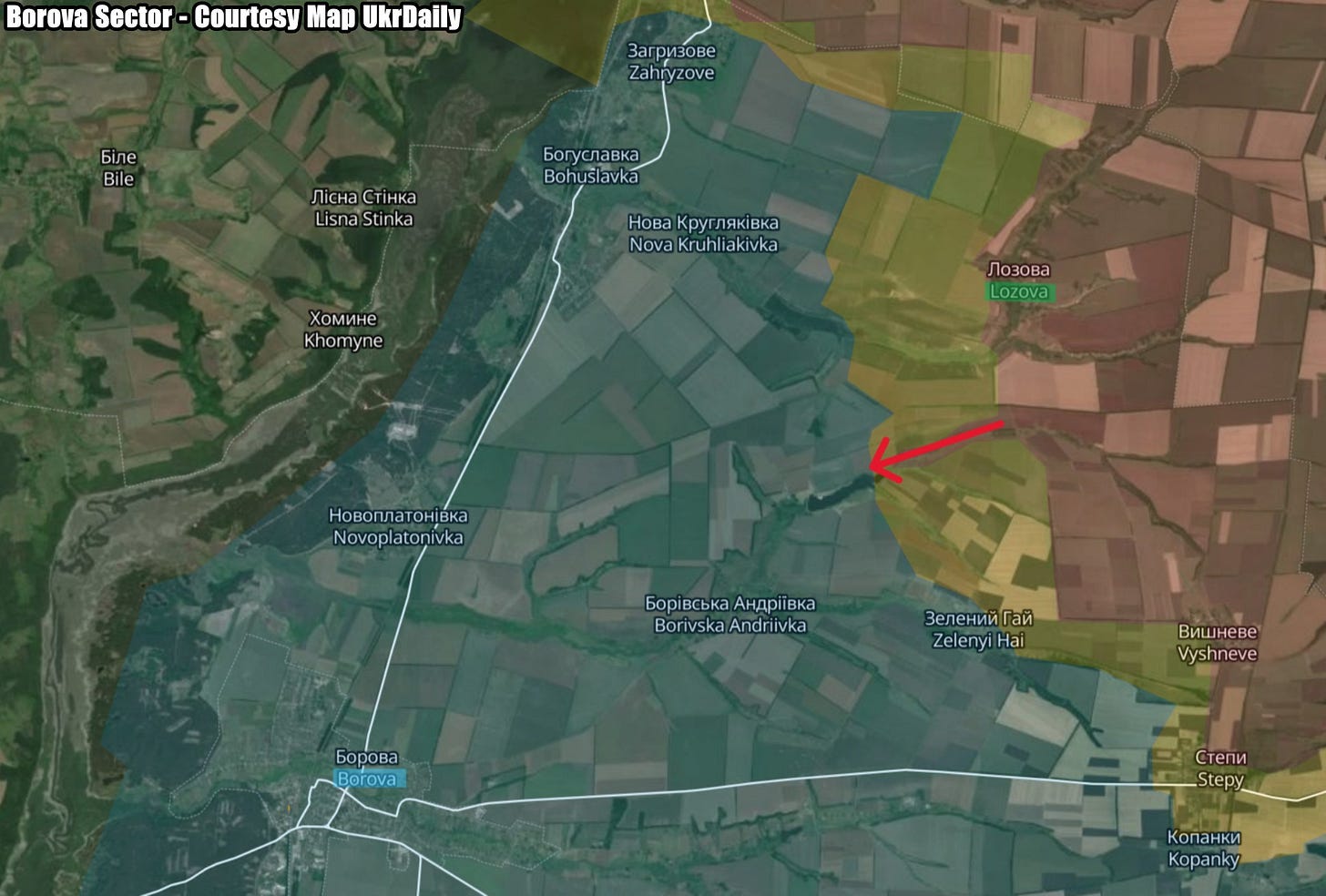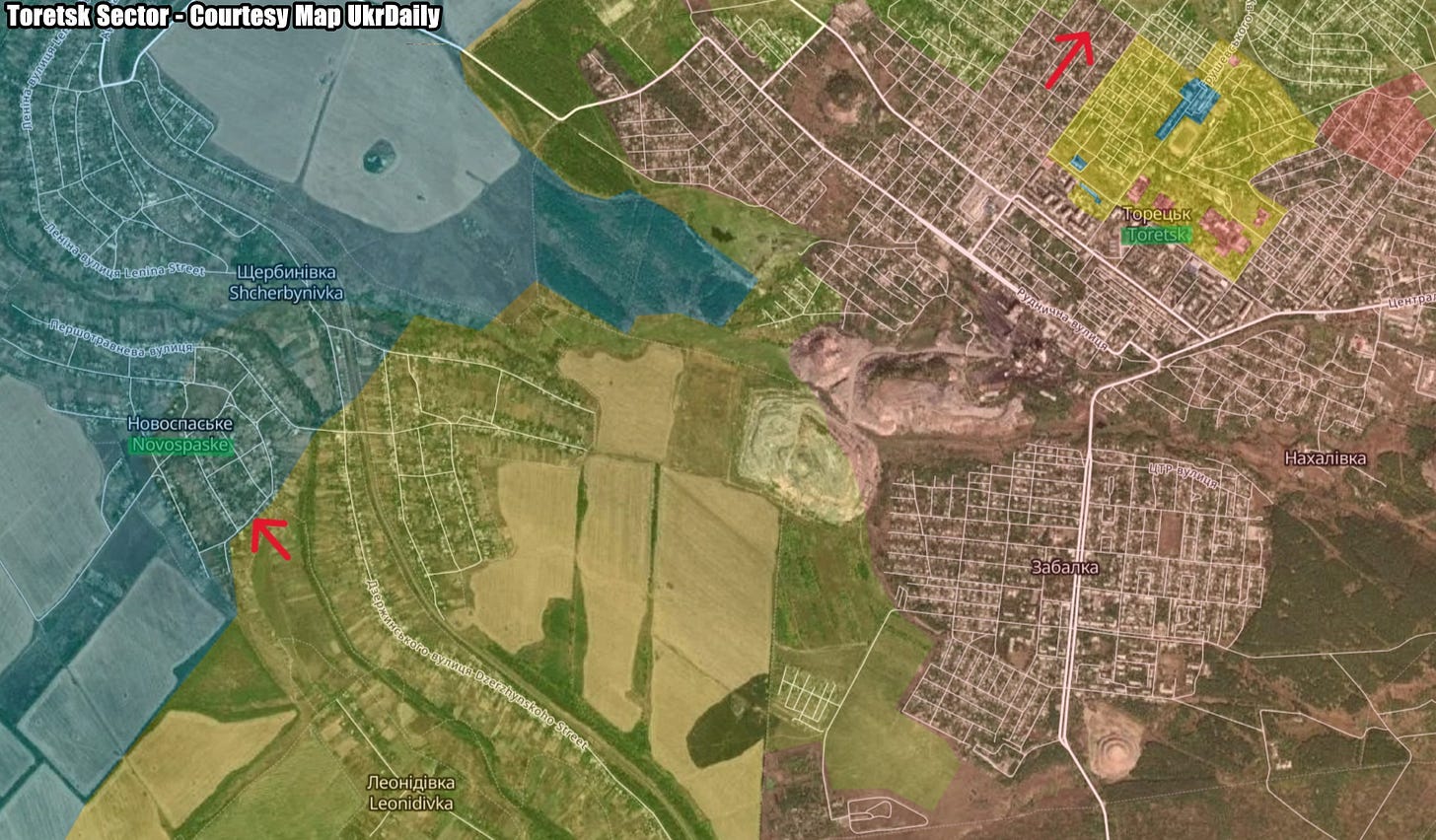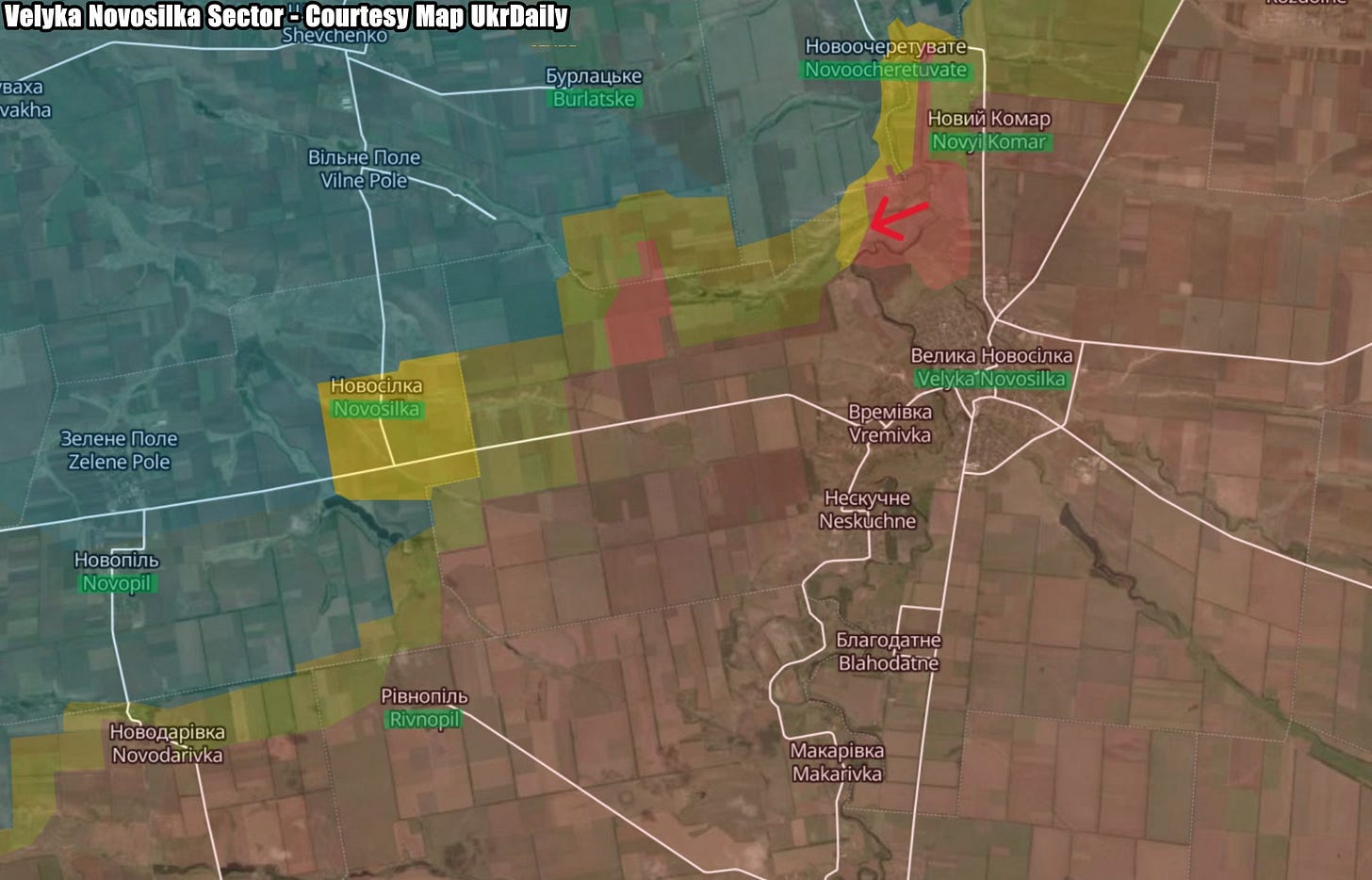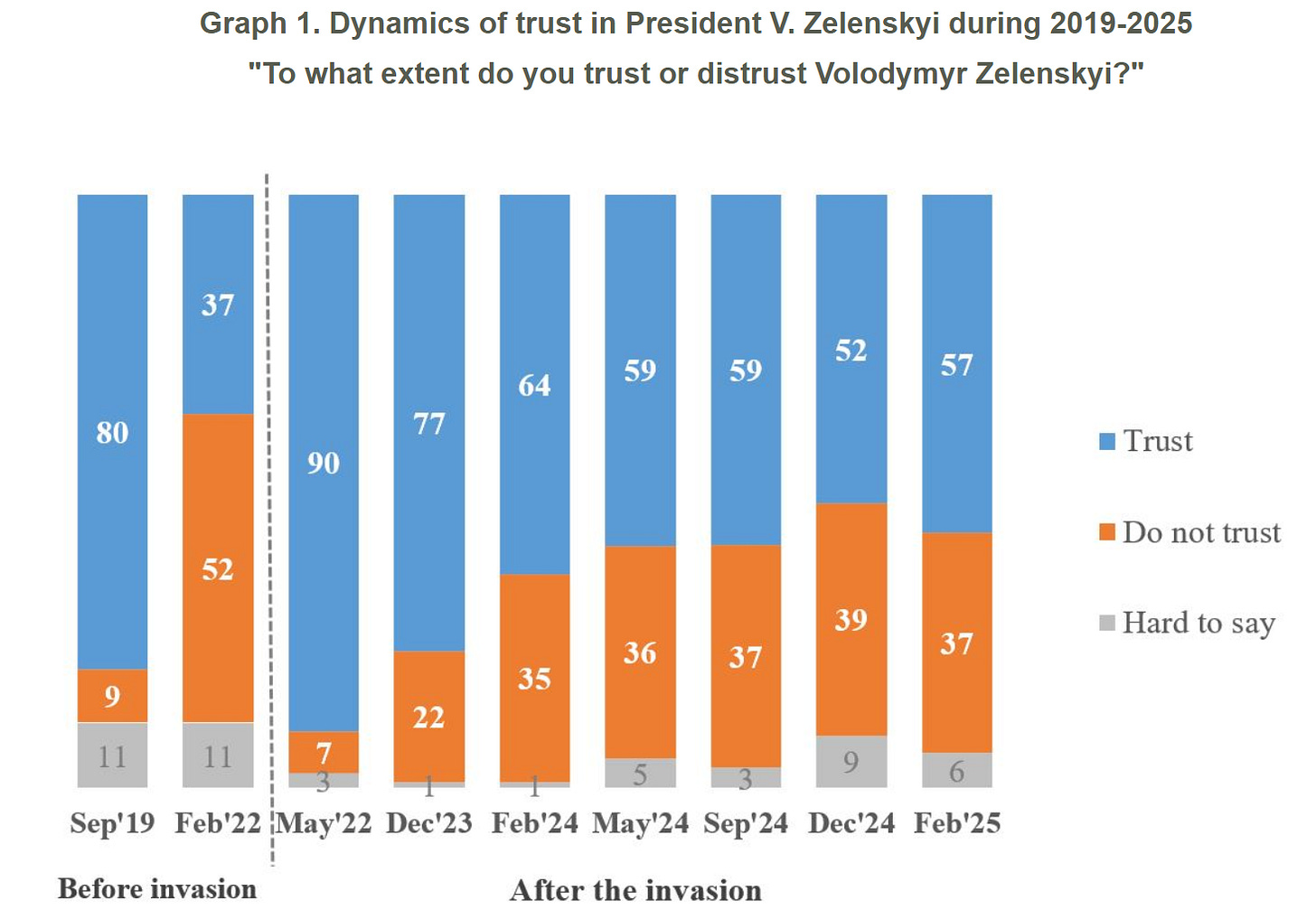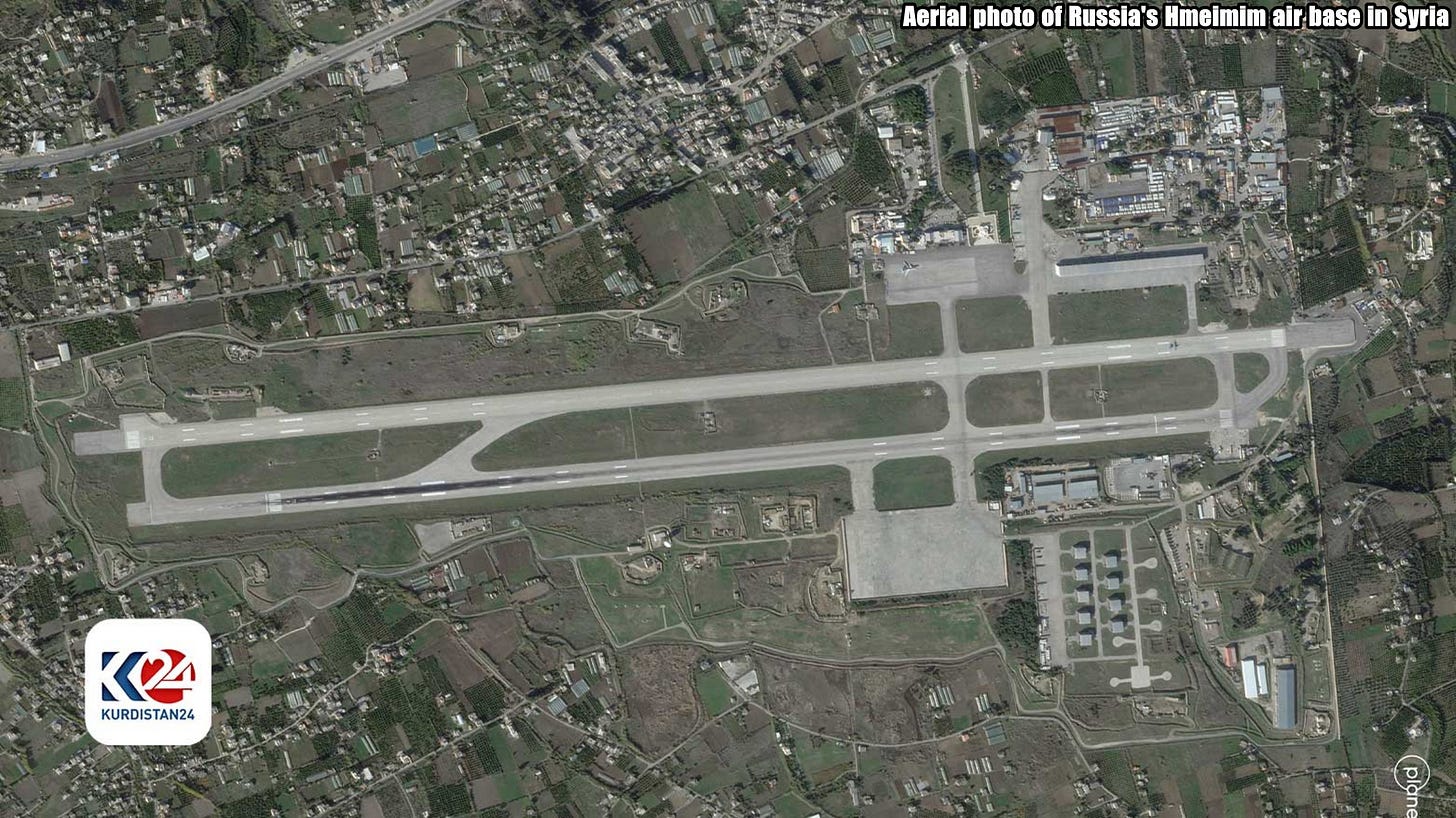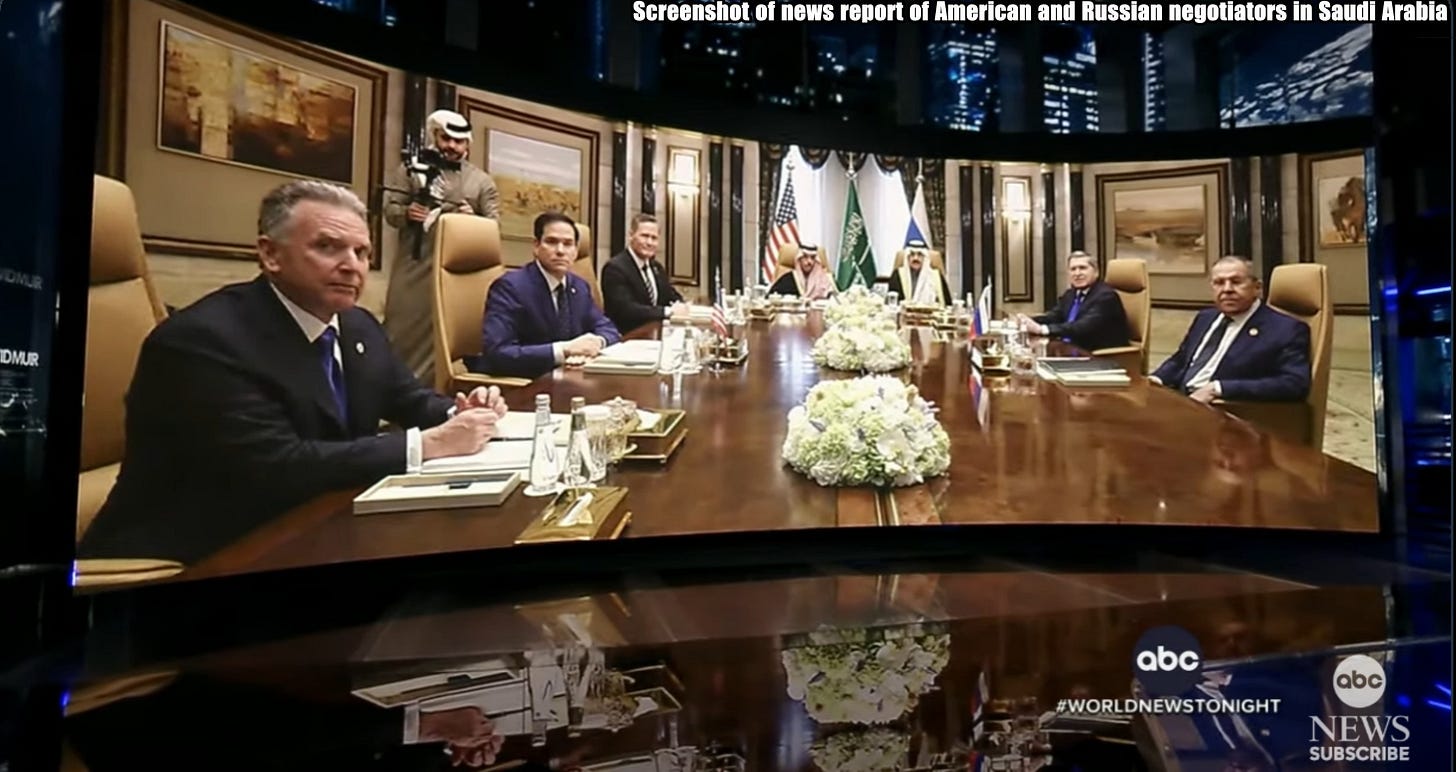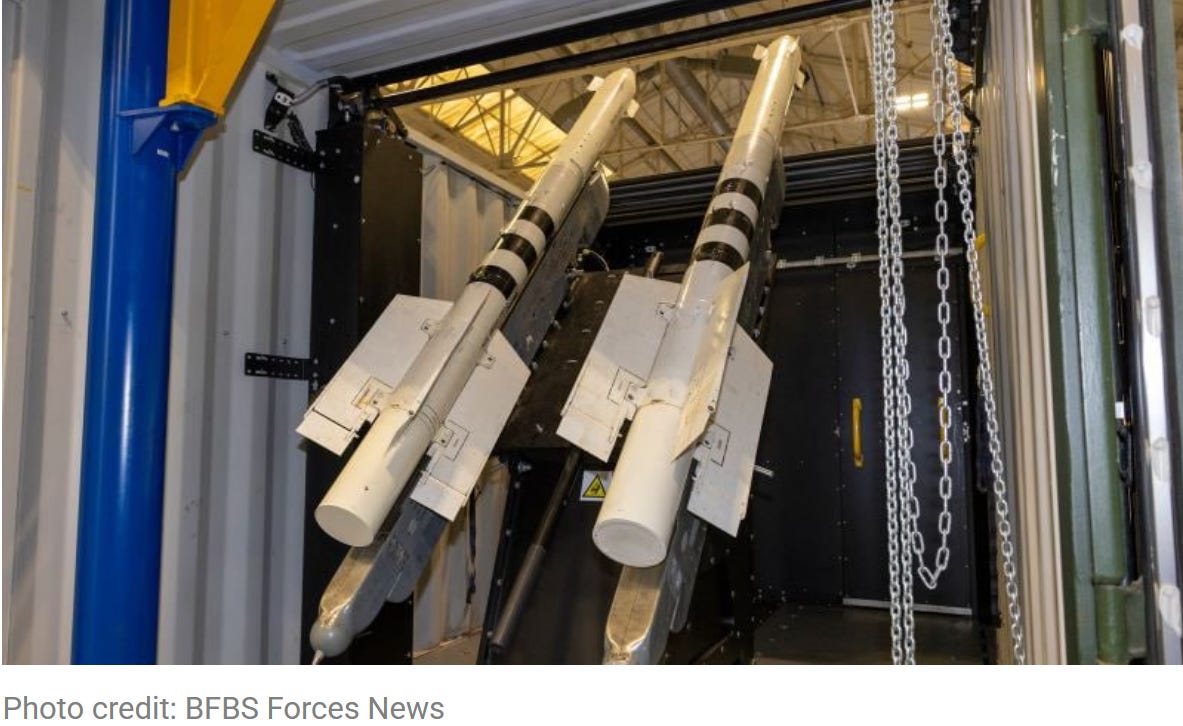An Editorial
Trump to Ukraine on the Russian invasion: "you should have never started".
I will depart from my regular format for once because I feel it’s time for something of an editorial. Donald Trump seemed somewhat agitated at a news conference he gave on Feb 18 from what is essentially his new White House South at his Florida Golf Course Mar-a-Lago.
When asked by a reporter if he had any message for Ukrainians who might be feeling betrayed at being excluded from the talks he responded:
“I’m very disappointed, I hear that they’re upset about not having a seat [at the talks],” The US president said a “half baked” negotiator could have secured a settlement years ago “without the loss of much land”.
“Today I heard, ‘oh, well, we weren’t invited.’ Well, you’ve been there for three years ... You should have never started it. You could have made a deal,” he said.
I suspect he was agitated for a number of reasons, firstly his plan to shake down Ukraine for 500 billion was leaked in its entirety to the press, possibly by someone in his own team, aghast at the sheer immorality of it. Extortion may be Trump’s standard operating procedure but the USA is used to being a tad more circumspect when using it.
Secondly, behind the scenes Trump is getting a lot of pushback both from European leaders [who quite rightly feel betrayed] at being purposely excluded from the negotiations, not to mention other ‘allies’ from around the world.
Thirdly because intelligence sources claim the Russians were more interested in attempting to negotiate long term deals and an end sanctions, in fact the same intelligence experts say Putin is uninterested in ending the war.
Things are not going to plan, Trump was expecting a quick deal to end this war ,and with his pal Putin, to divide up the spoils while at the same time weakening Europe. To get it he was prepared to betray his supposed “allies” and allow Putin free reign to take back most of the former Soviet Union.
But no quick deal is in the offing,Ukrainians have no intention of just surrendering and the Russians think they can take it all while a weak ineffectual president who has no real understanding [or interest] in international affairs flounders.
Finally Trump’s former allies in Ukraine and the rest of Europe are now forewarned of his intentions.
Slava Ukraini! In early 2022 I began a Telegram channel aggregating news from a number of sources daily on the war in Ukraine. In June 2023 I began providing a daily draft for the Ukraine War Brief Podcast collecting news from over 70 sources daily, which formed the basis of the script. While the Podcast no longer exists I have continued to make this Brief available for my followers here on Substack for those who wish to keep up with the news from the war.
All the latest news on the Russo-Ukraine War 6 days per week
ALONG THE CONTACT LINE
GSAFU Morning Report
The General Staff of the Armed Forces of Ukraine in its Operational Information update at 08:00 on Feb 19 stated that day 1092 of the full-scale invasion of the Russian Federation against Ukraine had begun.
The situation on the line of combat remains tense in some sectors. Ukrainian defenders continue to actively counteract the Russian aggressor, causing them significant losses in personnel, equipment and technology. Exhausting the enemy along the entire front line and continuing to disrupt the plans of Russian occupiers to advance deeper into the territory of Ukraine.
During the past day, 156 combat engagements took place.
Over the past 24 hours, the enemy carried out 3 missile strikes, 94 air strikes, used 2,386 drones and fired approximately 5,600 artillery shells across the positions of Ukrainian forces and civilians.
Air Force Daily Report
106 ENEMY UAVS SHOT DOWN, 56 DRONES FAILED TO REACH THEIR TARGETS (LOCATIONALLY LOST)
➖➖➖➖➖➖➖➖➖
On the night of February 19, 2025 (from 8:00 p.m. on February 18), the enemy attacked with 167 Shahed attack UAVs and simulator drones of various types from the directions: Orel, Bryansk, Kursk, Millerovo, Shatalovo, Primorsko-Akhtarsk - Russia, and also struck with two Iskander-M/KN-23 ballistic missiles at Sumy region from Voronezh region.
The air attack was repelled by aviation, anti-aircraft missile troops, electronic warfare units, and mobile fire groups of the Air Force and Defense Forces of Ukraine.
As of 09:00, it has been confirmed that 106 Shahed attack UAVs and drones of other types have been shot down in Kharkiv, Poltava, Sumy, Chernihiv, Cherkasy, Kyiv, Kirovohrad, Khmelnytskyi, Zhytomyr, Dnipropetrovsk, Zaporizhia, Kherson, Odessa and Mykolaiv regions.
56 enemy drone simulators were lost in location (without negative consequences).
As a result of the enemy attack, the regions of Odessa, Kyiv, Sumy, Cherkasy, and Zaporizhia suffered.
Combat Operations in the Kursk Sector, Russian Federation
The Institute for the Study of War (ISW), a US based think tank, in its Feb 18 Russian Offensive Campaign Assessment reported that Russian forces continued offensive operations in the Ukrainian salient in Kursk Oblast on Feb 18 but did not make any confirmed advances. Russian forces continued ground attacks northwest of Sudzha near Sverdlikovo and Pogrebki, east of Sudzha near Cherkasskaya Konopelka, and south of Sudzha near Kurilovka. Russian sources claimed that Ukrainian forces continued counterattacks in Kursk Oblast.
The Khortytsia operational-strategic group
(Responsible for the northeastern part of Ukraine. )
Borova Sector: Russian forces recently advanced in the Borova direction. Russian forces attacked northeast of Borova near Zahryzove, Nova Kruhlyakivka, and Lozova; east of Borova near Kopanky; and southeast of Borova near Makiivka and Hrekivka on Feb 17 and 18.
Geolocated footage published on February 18 shows Russian forces conducting a platoon-sized mechanized assault southwest of Lozova, indicating that Russian forces recently advanced in the area.
Toretsk Sector: Russian forces recently advanced in the Toretsk direction. Russian forces attacked near Toretsk itself, north of Toretsk near Krymske and Dyliivka, and west of Toretsk near Scherbynivka on Feb 17 and 18.
Geolocated footage published on Feb 17 and 18 indicates that Russian forces recently advanced in northern Toretsk and southwestern Novospaske (west of Toretsk).
The Tavria operational-strategic group
(Responsible for the central-eastern and southeastern part of Ukraine.)
Velyka Novosilka Sector: Russian forces recently advanced in the Velyka Novosilka direction. Russian forces continued assaults north of Velyka Novosilka near Novyi Komar and Novoocheretuvate, northwest of Velyka Novosilka toward Burlatske, west of Velyka Novosilka near Novosilka and Novopil, and southwest of Velyka Novosilka near Rivnopil on Feb 17 and 18.
Geolocated footage published on Feb 16 indicates that Russian forces recently advanced southwest of Novyi Komar.
The Odesa operational-strategic group
(Responsible for Kherson, Qırım, (also known as Crimea) and the Black Sea.)
There have been no major changes to the combat environment since our last report.
TEMPORARILY OCCUPIED TERRITORIES
Nothing major to report.
THE HOME FRONT
Zelenskyy's trust rating increases to 57%, survey shows, contradicting Trump's claims.
Around 57% of Ukrainians trust President Volodymyr Zelensky as of February, marking an increase of five percentage points since December, according to a survey by the Kyiv International Institute of Sociology (KIIS) published on Feb. 19.
The poll, carried out between Feb. 4 and 9, was published shortly after U.S. President Donald Trump alleged that Zelensky holds a "4% approval rating" without providing a source to back his claim.
The latest survey shows that Zelensky continues to enjoy support from the majority of Ukrainians, even marking a slight increase in trust after a year of steady decline in popularity throughout 2024.
Around 37% of respondents said they do not trust the president, a two-point drop since December.
"If some international partners and allies are worried about the legitimacy of the President in the context of possible peace negotiations and consider it appropriate to insist on elections, then from the point of view of Ukrainian citizens themselves, there are no problems with this," said Anton Hrushetskyi, the executive director of KIIS.
According to the latest poll from Reuters published Feb. 19, Trump's own approval rating currently stands at 44%.
Kremlin propaganda has pushed the narrative that Zelensky is an illegitimate leader, relying on the premise that his first presidential term was originally meant to end on May 20, 2024.
The false allegation ignores the fact that the Ukrainian constitution prohibits elections during martial law, which went into effect after Russia launched the full-scale invasion in 2022.
Pushing to broker a quick peace deal, Trump has begun pressuring Ukraine to hold elections while blaming Zelensky's administration for the continuation of the war.
"That's not a Russia thing. That's something coming from me," Trump said on Feb. 18 about the need to hold elections in Ukraine, claiming that his views were not influenced by Moscow's narratives.
RUSSIAN WORLD
Russian Air Base in Syria Attacked by Drones.
Unidentified drones attacked a Russian-controlled air base in Syria overnight, Iran-linked media reported early Tuesday, as Moscow seeks to maintain its military presence following the ouster of its closest ally in the region. The Moscow Times reports.
“Anti-aircraft guns inside the Russian-controlled Hmeimim air base in Syria are intercepting unidentified drones flying over the Russian base,” wrote Sabereen News, a media outlet affiliated with Iran-backed militias in Iraq.
A 17-second video accompanying that report showed three explosions in the distance, followed by the sounds of air defense systems firing into the sky.
It was not immediately possible to verify the video. Sabereen News is known for spreading disinformation for various purposes, including discrediting Iraqi officials and spreading anti-U.S. sentiment.
Oleg Blokhin, a pro-war blogger who has previously reported on the Russian military’s operations in Syria, claimed without evidence that the attack was carried out by the Islamist group Hayat Tahrir al-Sham, which currently holds power in Syria.
Blokhin said the drone attack on Hmeimim began around 2:30 a.m. local time and lasted more than an hour. He claimed Russia’s Pantsir missile system repelled the strike.
Neither Russian nor Syrian authorities have confirmed the reports.
Moscow is seeking to secure its military installations in Syria, including its naval base in Tartus and air base in Hmeimim — both located on Syria's Mediterranean coast and Russia’s only military bases outside the former Soviet Union — under the country’s new leadership.
Russian President Vladimir Putin spoke by phone last week with Syria’s interim leader, Ahmed al-Sharaa, for the first time since he took power in December.
Moscow is close to reaching an agreement with the new Syrian government to allow “some staff and equipment” to remain in the country, Bloomberg reported Monday, citing anonymous sources familiar with the matter. The report did not specify whether Russia would retain control of Hmeimim and Tartus.
Last month, Syrian media reported that the new leadership had terminated a treaty granting Russia a long-term military presence in Tartus.
INTERNATIONAL NEWS
Rubio Says US Won’t Lift Russia Sanctions Before Ukraine Deal.
Secretary of State Marco Rubio told European allies that the Trump administration would keep its Russia sanctions in place at least until a deal to end the Ukraine conflict is reached, Bloomberg reported on Feb 18 citing people familiar with the matter.
Rubio mentioned the plan to a group of European counterparts on a call Tuesday, according to the people, who asked not to be identified discussing private deliberations. Rubio held the call after he joined other US officials in a meeting with Russian counterparts in Saudi Arabia earlier in the day.
The assurances may offer a measure of relief to European allies that have feared the US would cut a deal with President Vladimir Putin to ease the fighting in Ukraine and let up on the crippling sanctions the Biden administration imposed on Russia over its invasion in 2022.
Many of those sanctions were put in place in partnership with European allies. A US decision to remove the restrictions early would deal a serious blow to Europe’s effort to deny Putin the money he needs to fund his war machine.
A State Department spokesperson declined to comment on Rubio’s sanctions comments. A State Department readout of Rubio’s call with European allies didn’t mention sanctions but said the countries “agreed to remain in close contact as we work to achieve a durable end to the conflict in Ukraine.”
Earlier in the day, Rubio said all sides would have to make concessions to reach a deal but said any such agreement must get buy-in from all sides.
“The goal is to bring an end to this conflict in a way that’s fair, enduring, sustainable and acceptable to all parties involved,” he said. “That’s what the ongoing engagement is going to be all about.”
While Moscow has asked the US for sanctions relief, the EU currently has no plans to ease measures against Russia.
Russia was unwilling to negotiate regarding the war in Ukraine during bilateral meetings with the USA.
The Institute for the Study of War (ISW), a US based think tank, in its Feb 18 Russian Offensive Campaign Assessment reported that Russian officials at the bilateral meeting continued to signal the Kremlin's unwillingness to negotiate on the war in Ukraine and determination to achieve its maximalist objectives in Ukraine. Lavrov claimed that authorities in Romania and other unspecified EU states are discussing laying claim to Ukrainian territory. Lavrov's claim is part of a wider Kremlin information operation that claims that Ukrainian territory is actually the historical territory of other states such that only a rump state in western Ukraine might be left independent after Russia and Ukraine's other neighbors had absorbed most Ukrainian territory.
The Russian MFA stated that the Russian delegation in Saudi Arabia reiterated the need to eliminate the "root causes" of the war in Ukraine. Kremlin officials have defined these root causes as NATO's alleged violation of obligations not to expand eastward and the Ukrainian government's alleged discrimination against ethnic Russians and Russian language, media, and culture in Ukraine. Kremlin officials have frequently referred back to Russia's alleged need to address these "root causes" in recent weeks, including during Putin's Feb 12 call with Trump. Claims about the "root causes" of the war are in direct reference to Putin's late 2021 and early 2022 demands of the US and Ukraine, include demands that would force Ukraine to become a permanently neutral state that could never join NATO, impose severe limitations on the size of the Ukrainian military, and remove the Ukrainian government.
Moscow's presentation of the "root causes" of the war is intended to place the blame for Russia's full-scale invasion on Ukraine and present the start of this war of conquest as something Russia was compelled to undertake rather than the unprovoked aggression it actually was. This presentation denies the realities that Zelenskyy ran and took office on a platform of ending the ongoing conflict and sought to negotiate with Putin early in his term and that Putin refused to curtail his proxies' continuous violations of the terms of the Minsk II agreement.
Lavrov also denied Russia's culpability for its deliberate and years' long strike campaigns against Ukrainian energy infrastructure. Lavrov claimed that Russian forces did not intend to damage Ukrainian energy infrastructure despite ample evidence that Russian forces have consistently waged strike campaigns using high-precision weaponry to specifically target Ukraine's energy infrastructure. Russian forces have also repeatedly experimented with different strike packages that aim to ensure that high-precision weapons are able to bypass Ukrainian air defense and reach their intended energy infrastructure targets. Lavrov claimed that US officials at the bilateral meeting proposed a moratorium on strikes against Russian and Ukrainian energy facilities, and Lavrov responded that Russian forces only strike facilities that "directly support" the Ukrainian military. Lavrov is deliberately downplaying the Russian strike campaigns against Ukrainian energy infrastructure that Russian forces have waged every winter of Russia's full-scale invasion.
Russian officials in Saudi Arabia began what will likely be an ongoing effort to push the United States into accepting Russian offers of economic and investment measures in lieu of any actual Russian concessions on Ukraine. CEO of the Russian Direct Investment Fund (RDIF) Kirill Dmitriev, who was part of the Russian delegation in Saudi Arabia, told CNN on February 17 that he had already met with several unspecified members from the US delegation in Riyadh prior to the official talks on February 18. Dmitriev denied that Moscow primarily sought to lift sanctions against Russia, claiming instead that both the United States and Russia would benefit from economic cooperation. Dmitriev stated on February 18 that he would present the US delegation in Saudi Arabia with an estimate that US companies lost an alleged $300 billion by leaving the Russian market.] Dmitriev stated that major US oil companies "have had very successful business in Russia" and that the companies will return to Russia "at some point," reasoning that the companies would not "forego" the opportunities Russia offers in terms of access to Russian natural resources. Dmitriev claimed that the Russian delegation put forward a number of unspecified economic proposals that the United States is considering and that he thinks there could be progress on these areas in the next two to three months.
Dmitriev also called on Russia and the US to establish joint projects in the Arctic, and Minister-Counselor of the Russian Embassy in Canada Vladimir Proskuryakov, who is reportedly an Arctic specialist, notably attended the February 18 bilateral meeting. The Kremlin appears to be engaging in an effort to push the United States to accept economic terms that are unrelated to the war in Ukraine, possibly in return for Ukrainian and Western concessions that are related to the war.
ISW concludes American acceptance of these Russian-offered economic measures — without demanding any Russian concessions on Ukraine in return — would give away leverage that the United States will need to achieve Trump's stated objective of achieving a lasting and enduring peace that benefits the United States and Ukraine.
MILITARY & TECH
Ukrainian Intelligence Says Russia's Setting Up Production of Shahed-238 Analog.
The Defense Intelligence of Ukraine [HUR] reports that Russia is setting up the production of the Geran-3 kamikaze drone, a Russian copy of the Iranian Shahed-238 equipped with a small-sized turbojet double-circuit engine Tolou-10/13. Defense Express reports.
This engine provides Geran-3 with a maximum flight speed of 550–600 km/h (~370 mph) and a range of 2,500 kilometers (1,550 mi). The new capability in the Russian forces poses a significant threat to the Ukrainian military and civilian population but it can be countered with air defense weapons like the newest Grawehawk received by Ukraine from the United Kingdom — more on this shortly.
The fact that the Geran-3 is being reported as an exact "Shahed-238 copy" is important because in late 2023, the Russian forces had already attempted using the original Iranian Shahed-238 for strikes on the territory of Ukraine. The first public appearance of Shahed-238 in Iran dates to the fall of 2023.
Defense Express previously covered the Shahed-238 jet UAV in detail by analyzing the photos with answers to the main questions about this drone. In particular, the pictures revealed during its development the iranians went for the easiest solution and equipped it with components accessible on the civilian market. Disassembly of a Shahed-238 downed in Ukraine further showed that the drone's engine, the PBS TJ150, is made in the Czech Republic, and the navigation unit is from Canada.
According to Ukrainian Defense Intelligence, the russian analog uses Tolou-10/13 jet engines (Tolou-10 is an iranian copy of the Czech PBS TJ100). Since this time it's a product manufactured in iran, the production of Geran-3 russia might be held back depending on the stability of jet engine supplies from its partner.
The type of warhead implanted in Geran-3 remains not disclosed, making a verified assessment of the drone's destructive power impossible. However, the effectiveness of this long-range weapon will depend not only on its individual specifications but also on the volumes of its production that the russian military industry will be able to exert.
The intelligence agency reports that the flight speed of Geran-3 is up to 550–600 km/h, meaning that Ukrainian mobile fire groups of air defense with guns and small arms will have an extremely hard time shooting down these jet UAVs, the same is true for helicopters often dispatched to intercept much slower Shahed-136/131 propeller-driven drones.
Still, what really can help is man-portable surface-to-air missiles, classic air defense missile systems, Gepard guns hailed as "anti-aircraft tanks," or the aforementioned British Gravehawk, a specially designed system to launch Soviet R-73 air-to-air missiles from the ground.
That’s it for today’s Brief folks if you would like to keep up with events in Ukraine daily please consider subscribing, it’s free!


